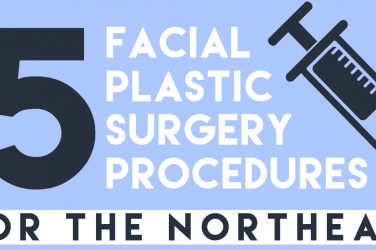When you start studying medicine, you realize that the books and materials you are soaking in today can become obsolete tomorrow, or in a decade. The tools you use in the classroom and when you become an intern, much like the skills you develop with those same tools have the same fate – they advance, evolve, and become replaced by more refined tools and technologies to serve humanity. As it turns out, being a student in medicine is a permanent state of being. You never really finish learning or stop upgrading your knowledge and skills.
No matter what kind of healthcare professional you are, obtaining certain certifications can help you advance professionally and become a more interesting candidate to some of the more prestigious healthcare institutions in your region. PALS, or pediatric advanced cardiac life support certification is one of those opportunities that can make all the difference for your career, as well as your patients. Here’s what you need to know.
Understanding PALS
While basic life support skills or BLS will certainly be essential for any emergency medical services professional, PALS covers a unique set of skills, tools, and drugs used to treat children and infants. Precisely because the patients, in this case, are young, different medication, methods, and tools apply. Equally relevant are the team dynamics among your colleagues and other medical staff during an emergency in which a child is involved.
The PALS certification training provides ample guidance on how to assess a situation accurately to recognize and prevent potential respiratory and cardiac arrest instances. Moreover, PALS training helps EMS professionals handle the drug administration process, specific interventions that apply to children and infants, core CPR procedures, and post-emergency care. With this certification, you will not just be able to prevent or treat a young patient, but also monitor their condition after the emergency.
Providing cutting-edge pediatric care
The primary and most obvious reason PALS is so essential in modern medicine is to provide the most advanced care to children and infants in emergency situations. These are, quite literally, life-saving skills that can make all the difference should your young patient succumb to a respiratory or cardiac arrest.
The certification encompasses everything from learning about PALS drugs to make sure each patient receives the right drug at the right dosage, to recognizing which event requires the use of which procedure and treatment. With such knowledge and skills, you will be able to help your pediatric patients in their most critical conditions.
Ensuring your competitive advantage
The healthcare industry is always looking for skilled and expert staff. However, more people are getting their certifications and learning to become better professionals in the process. What that means for you as a worker is that competition will become greater over time, and specific skills might just be what you need to tip the scales in your favor when applying for certain positions.
It’s understandable that you’re extremely busy as a healthcare student, but it’s possible to take some of these courses online and obtain your PALS certification in that way. It will enable you to gain that competitive advantage without abandoning your everyday responsibilities or internships you’re pursuing.
Giving advanced help during the pandemic
The pandemic has been a learning experience for everyone involved, but especially for those who work in the field of medicine. The entire world has had to adapt their response strategies and emergency procedures accordingly, to slow down the pandemic and help those who are at the greatest risk. When it comes to children with preexisting chronic conditions, their risk of severe COVID-19 infections might be greater, and PALS knowledge become vital in providing optimal care in a crisis of these proportions.
Whether you’re already at the forefront of the pandemic and the response team, PALS certification can certainly help you ensure the most appropriate tools and methods are used despite the ongoing chaos caused by the pandemic.
Boosting independence in medical emergencies
For numerous emergency procedures, you need an entire team of response medical professionals to be able to follow the right protocols and administer the necessary treatment. Children and infants are no exception, so if you ever find yourself handling a child in critical condition, you want to have all the skills to save their life.
PALS doesn’t eliminate the need for collaboration in medical emergencies, but it does equip healthcare professionals to be more knowledgeable and flexible when responding to an emergency, to ensure successful procedures and be more independent.
Like basic life support (BLS) and advanced cardiac life support (ACLS), PALS becomes an essential course to master for EMS professionals, as well as any healthcare worker who wants to expand their skills. Working with children and infants in itself is a unique challenge, so keeping with the times when it comes to the latest and most effective treatment methods and solutions is vital for your profession. Luckily, with online courses and easy-to-use supporting material, it’s much simpler for any medical professional to obtain such certification at their own pace and provide help when it’s needed most.







